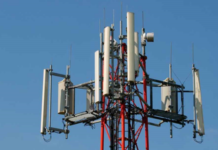5G Connectivity and the Future of the Digital Economy
By Inyene Ibanga
TECHDIGEST – Emerging technologies are the key enablers opening new opportunities for accelerated productivity and competitiveness in the unfolding Fourth Industrial Revolution (4IR).
The Fifth Generation (5G) wireless technology offers the greatest transformative power to ensure that the Fourth Industrial Revolution realises its full potential through its unprecedented connectivity capability.
This breakthrough technology represents the latest breed of digital applications with higher speed and faster data transfer from wireless broadband networks.
5G wireless technology is believed to be one of the fastest and most robust technologies the world has ever seen, because there are so many developments and possibilities inherent in its creation.
Beyond the speed capability, it is believed that 5G wireless technology enables a massive Internet of Things (IoT) ecosystem, where networks can service the communication need of billions of connected devices at once.
That means it will bring connectivity to many more mobile tools, machines and robots, smart communities, industrial IoT, and many more.
The 5G mobile (wireless) network is a new global wireless standard after the 1G to 4G networks. It enables a new capability designed to connect everyone and everything, including machines, objects, and devices.
Although it takes off from the previous generations of Internet network, 5G is built to provide more connectivity, facilitate the unlimited expansion of the mobile ecosystem, and impact every industry.
A 2020 White Paper released by the World Economic Forum (WEF) estimated that 5G will likely contribute $13.2 trillion worth of goods and services to the global economy by 2035.
According to the WEF, the ten primary industry sectors to be most impacted are manufacturing, transportation, public services, health and social work, agriculture, energy, logistics, media and entertainment, mining and quarrying, and professional services.
Through the effective deployment of 5G networks, 3D medical imaging, remote healthcare, safer transportation, precision agriculture, digitised logistics, and industrial/manufacturing processes will become a reality.
The 5G wireless technology brings three major improvements to 4G: Wider channels (speed/superfast broadband), ultra-reliable low latency (low responsive time), and more bandwidth (the ability to connect a massive number of devices at once and in real-time).
In a nutshell, the 5G wireless network will significantly impact how we live, play, and work, as it provides quicker downloads. Its connectivity power reduces delays, while offering reliability, and a higher density of connections or outstanding expansion in connectivity.
Read Also:
Businesses and consumers will enjoy 5G to deliver efficiency and enjoy faster access to massive information like never before.
Many North American, European, and Asian countries have deployed 5G to enhance their infrastructure, promote sustainable industrialisation, and foster innovation.
Data supplied by statista.com shows that 58 countries had 5G networks as of June, compared to the 38 last year.
South Korea, the first country to deploy the 5G network, is targeting 60 per cent of mobile subscriptions to this by 2025.
MTN and Vodacom launched 5G networks in South Africa last year, while Safaricom’s launch in April, made Kenya the second African country to roll out the superfast network.
Last month, Nigeria’s Minister of Communications and Digital Economy, Isa Ali Pantami announced that the Federal Government approved the deployment of the 5G network after a meeting of the Federal Executive Council on September 8.
Upon the approval, the Minister directed the Nigerian Communications Commission (NCC) to commence the development of relevant regulatory instruments to address issues related to health, safety, and others to drive the effective implementation of the roll-out of 5G by Mobile Network Operators (MNOs).
Invariably, the benefits of 5G networks are limitless because its impact cuts across all industries in the economy, ranging from manufacturing to social, economic, and professional services like security, emergency preparedness, remote healthcare, education, and agriculture, among many others.
The 5G network will accelerate and increase digital inclusion by facilitating improvement in service quality, especially in rural locations, and reduce rural-urban drift, as more small businesses rely on high bandwidth connectivity enabled by 5G.
To fully realise these positive impacts of 5G networks, all stakeholders need to be carried along to ensure effective monitoring and availability of a friendly business climate for investments.
Meanwhile, as Nigeria embarks on the journey into the world of 5G wireless networks, the Federal Government must establish a new cyber security regulatory architecture to reflect the new realities and mitigate any threats to national security. Also, the Federal Government needs to create policy and legal tools for assessing a supplier’s risk profile to ensure that suppliers/vendors demonstrate trustworthiness, on the basis of independent assessments.
Network operators will need to prove that they would use secure designs, software engineering, and adopt best security practices and procedures in their products and services. These factors will determine the government and private-sector efforts to maintain security on this new level of internet connection.
The National Information Technology Development Agency (NITDA) and NCC have to consolidate their mandates toward encouraging a diverse and sustainable supply chain of trusted and secure manufacturers for network and system components.
Inyene Ibanga is Managing Editor TechDigest and writes from Wuye District, Abuja.



















